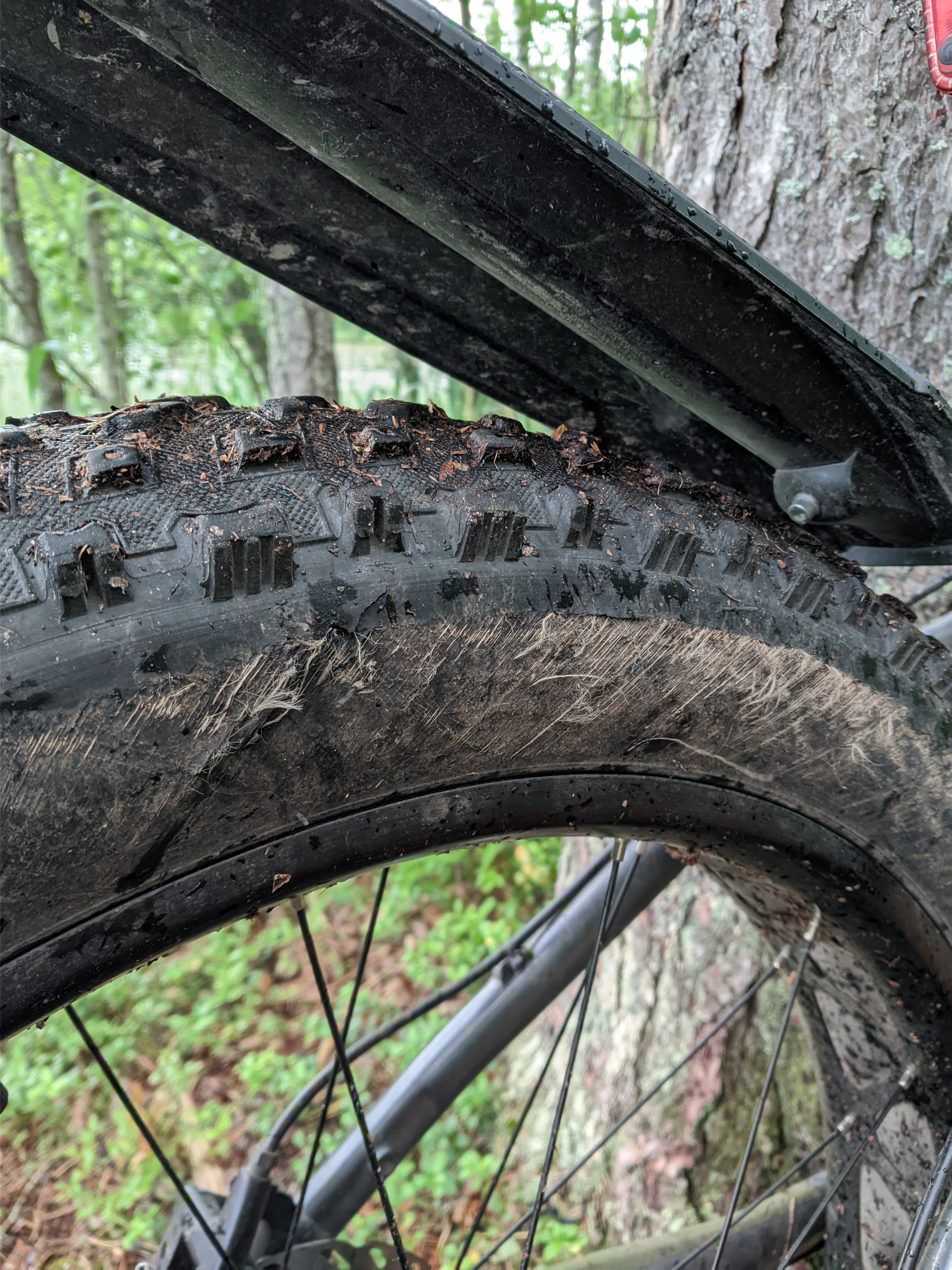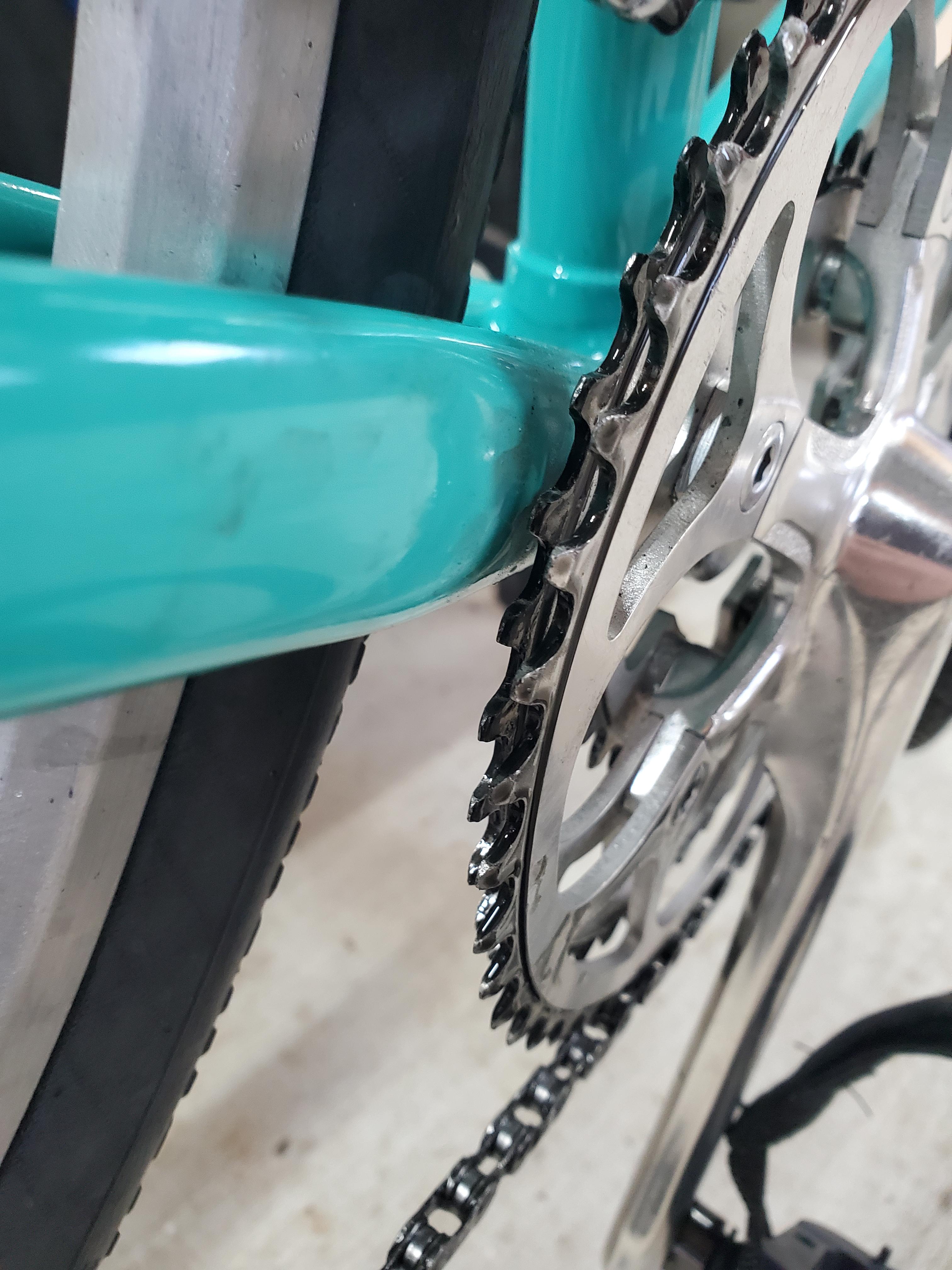I replaced the whole drivetrain 23 months ago (cassette + crankset + chain all at once). I bought the cheapest new parts I could find which came out to 5 local Big Macs on today’s McDonald’s index (in total).
The chain has started slipping every time it rains. I don’t blame the rain I just suspect that it’s reaching the end of life and the water just puts it over the edge enough to slip. I assume it will soon start slipping in dry conditions as well, correct?
Can I do much better than 2 years?
I somewhat abused the chain. Added proper oil every ~2 weeks but never cleaned it. There are lots of unsupported claims in the wild that cleaning the chain substantially increases the longevity. Okay, sounds plausible but I’ve seen no stats. If a weekly cleaning (thus 104 cleanings) would extend the drivetrain’s life by a couple weeks for example, that’s not worth the effort. So does anyone have any figures, even anecdotal?
Guess I should mention this is urban city riding, not trail, so presumably cleaning would be less impactful. And I’m not a serious enough rider to need high performance.
I’ve also heard the sprocket and cassette should be replaced every other chain replacement. Is that good advice? So I only need to replace the chain at this point?
Is it just the chain’s life that is shortened by not cleaning, or are the gears also significantly worn down faster?








